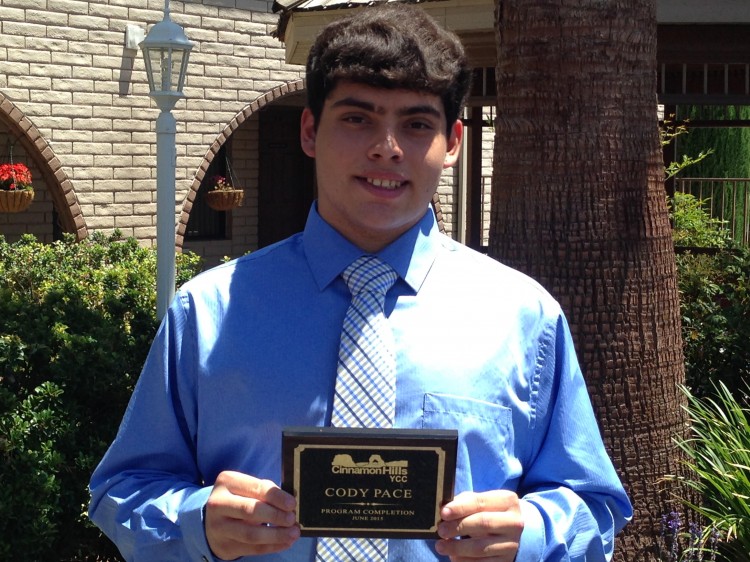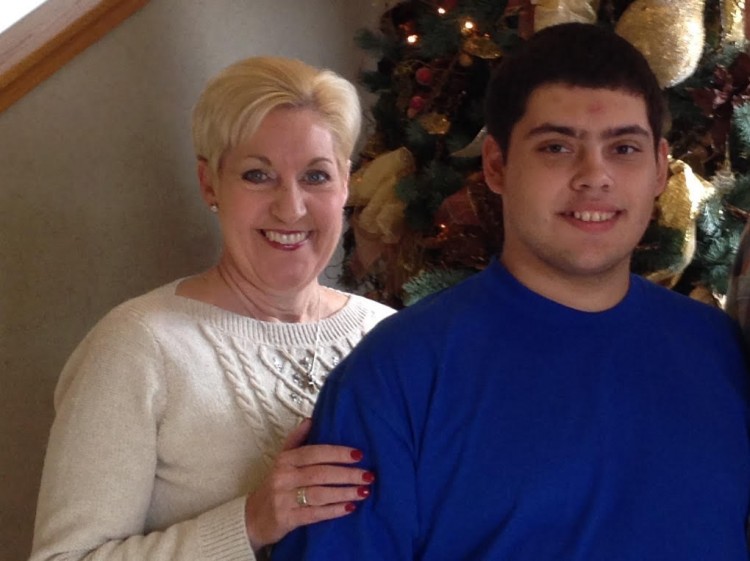Our son Cody began presenting signs something was “wrong” at a very young age. The first “red flag” went up when he was just 18 months old. By the time he was 2 we were becoming more and more concerned, but as new parents we assumed our “Terrible Twos” were just exceptionally terrible.
But the “Terrible Twos” turned into the “Horrible Threes” and the pre-school years were even worse.
Exhausted, we decided to enroll Cody in a pre-school program. As an only child, we thought interaction with other kids would be a good idea. We found a reputable program and signed Cody up. We were thrilled.
But almost immediately, I began receiving phone calls.
“Cody is in trouble.”
“Cody didn’t follow directions.”
“Cody was aggressive.”
“Cody wasn’t able to be still during story time.”
“Cody was written up again today.”
“Parents are complaining about Cody.”
And finally….
“Cody can no longer attend our program.”
And so we tried another school.
And another.
And another after that.
We got kicked out of every one.
I was constantly being told was how difficult Cody was and that I had no control over my child.
But they couldn’t control him either.
I began to internalize the criticism and before long was convinced I was a terrible mom. All the other kids behaved. Why couldn’t I get it right?
My self-esteem was shot.
I can only imagine how Cody must have felt.
I knew Cody was a challenge. I lived with him. (Believe me, I knew!) But I needed respite and I needed help! If I couldn’t handle him and the professionals couldn’t handle him, what were we supposed to do?
Twelve years and multiple hospitalizations later, Cody is now 16 years old. He has a diagnosis of bipolar disorder and ADHD, he is oppositional and defiant and he has sensory processing issues. Cody is a sick kiddo, but he is also very smart, very mechanical, incredibly loving and kind. He is artistic and has a great sense of humor. We adore Cody.
And over the years, as we’ve navigated our nation’s failed mental health care system and worked with educators to help our son, I’ve learned some important lessons. Thankfully, I no longer hang my head in guilt and shame. In fact, I am proud to say I’ve learned to effectively advocate for my child. With the help of our school district, we have finally found some success.
Parents and teachers, this is for you. I want to encourage you. You all play a significant role in the lives of children affected by brain disorders. Your partnership is critical to the success of the child. Here are a few of the most valuable lessons I have learned.
To parents:
1. Admit there’s a problem.
Parents, if you have a child with special needs of any kind, but especially if your child has a mental illness, the best thing you can do for your child is admit something is wrong. So many parents walk in such grief, guilt and shame that they refuse to admit there’s a problem. By walking in denial you are hurting yourself but more importantly, you are hurting your child. There is no shame in having a mental illness. If your child had cancer, you would do everything you could to help them. Mental illness is no different. Don’t let it be different. If your child has a brain disorder, love them, grieve for them and be honest about it. Help is hard to come by, but it is available. Admit there’s a problem and seek help.
2. Partner with your teachers and administrators.
Once you have determined and accepted there is a problem, your school administrators and teachers must become your best friends. Be kind to them. Encourage them. Talk openly with them about your child. Ask them how you can help them and ask for their advice. Work together. They are your team. You need them and they need you. Most importantly, your child needs you all. Work closely with your school.
3. Remember you know your child best.
As parents, we naturally want to put our trust in the “professionals” and the “experts.” We rely on them to know what is best for our children. But over the years I have discovered even the most well-intentioned professionals do not know my child as well as I do. Listen and heed their advice when it seems appropriate, but if something does not feel right or sound right, remember, you are an expert too! In fact, you are the expert when it comes to your child. Be kind and professional but speak up confidently. Don’t be afraid to voice your opinions and concerns.
4. Be patient.
Working with the education and mental health care systems is a process. Mental illness is not treated like any other illness in our nation and as a result our school districts have become responsible. This is wrong. But for now, it’s the system we have to work with. I sincerely believe in most cases, school districts really do try to do what is best for the child. However, they have a process they have to follow, which includes a lot of hoops and red tape to jump through. Follow up with them, but be patient. Work with them, not against them. Earn their trust and let the system do its job. In the end, they have a responsibility to provide a free and appropriate education for your child. Stay on top of them, but be patient and kind. If you work with them, they will work harder for you.
5. Say thank you.
Teaching is a thankless job. Teaching kids with special needs and mental illness takes thankless to a whole new level. Be sure to thank your teachers. Praise them when you see they’ve gone the extra mile, bring them a Starbucks to start their day and let them know you appreciate them. A simple “thank you” will go a long way.
To teachers:
1. Thank you.
Teachers and administrators, you are overworked and underpaid. Your job is thankless and I know you sometimes feel like a babysitting service instead of professional educators. Your classrooms are overcrowded, sometimes un-air-conditioned and at the end of the day you still have to go home and grade papers. You are important and valuable and while it may not always feel like it, you are appreciated. Thank you.
2. Join our team.
Teachers and administrators, we need you! Our children with mental illness learn differently than other kids and their illness makes things very difficult at home. Caring for our children will require a team approach. We need you to be on our team. Be gentle with us. In many cases we are living in 24/7 crisis. We are scared, ashamed and we feel alone. We may make your life difficult sometimes, but it is only because we want to help our children and the system does not make that easy. We need you, but more importantly our children need you. You play a vital role in our children’s success. Please join our team!
3. You make a difference, please know the difference.
Teachers and administrators, you’re on the front lines with our kids. Your help is critical when it comes to caring for our children with mental illness. Mental illness is real. Perhaps you know this, I hope you do, but I need to say it again anyway: Mental illness is real. It’s not just a behavioral problem or something the parents are doing wrong. It’s an actual medical condition that requires medication, just like heart disease or diabetes. I cannot begin to tell you how often I have been berated for bad parenting when my child actually has a diagnosable mental illness. Your willingness to understand and know the difference between behavioral problems and actual mental illness is critical to our families. Please help us help our children. Be aware and know the difference. If you don’t know, then talk with us or ask your superiors to provide additional training.
4. Listen to us.
We recognize you are the professionals and the ones with the degrees. We value your input and we trust you to help us help our children. But just as we respect you, we need you to respect us. We truly know our children better than anyone else. Our insights can be a huge help to you. Please listen and take our concerns seriously. Most parents are genuinely well-intentioned. Let’s work together!
5. Don’t give up on our kids.
The teachers who stand out are the ones who gave Cody a chance. Kids who have mental illnesses are difficult. Believe me, as parents we know! But our children with mental illness are important too. They deserve a chance. So even though your classroom is overcrowded and you’re tired from all the state testing, don’t be afraid to think outside the box to find ways for our children to participate. And most importantly, focus on the positives. Give our kids praise. Give us praise! Your kindness and encouragement will go a long, long way.
To parents and teachers:
Please be willing to admit some kids just need more help than parents can provide. This is nothing to be ashamed of. It’s not the fault of the parents, the child or the school. The child has an illness. Let’s treat it that way. Your willingness to work together and to encourage and support one another is crucial for every child’s success. When a child has a mental illness, there are no easy answers. But together, we can work better and smarter to ensure that every child has a chance.

A version of this post originally appeared on Bold Faith Ministries.
Want to join the discussion about mental illness? Like us on Facebook.
And sign up for what we hope will be your favorite thing to read at night.

